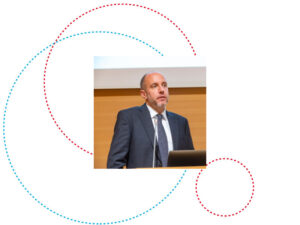After having received the Grand Prix 2018 en sciences biologiques, Associate Prof. Paul Wilmes has now been elected full member of the Institut Grand-Ducal.
Founded in 1868, the institute’s purpose is to cultivate science, literature and the arts and to contribute to their radiance nationally and internationally.
The institute’s mission is to promote research and encourage scientific and artistic initiatives. It is a center for cooperation between scholars and artists from the country or from other countries.
The Institut Grand-Ducal is made up of 6 sections, including the Natural, Physical and Mathematical Sciences Section, which Prof. Paul Wilmes has joined along with other notable Luxembourg-linked scientists including the Luxembourg-born Nobel laureate Jules Hoffmann. Leading LCSB’s Eco-Systems Biology group at the University of Luxembourg since 2011, Paul Wilmes’ research focuses on studying the key functionalities of microbial communities, including the ones that are found in and on the human body. His group has pioneered innovative methodologies for studying communities of microbes at the molecular level over space and time. This has allowed for example to define lifestyle strategies of distinct populations of microorganisms and link these to their genetic and functional characteristics, with applications in many different fields such as health, water treatment or bioenergy production. These approaches also allow to unravel the interactions between microbiomes and their hosts. In this context, his research group has developed a device called HuMiX, which allows the co-culture of human cells and bacteria under conditions representative of the human gut. This unique artificial model the size of a beer mat helps scientists to understand the impact of the gut microbiome and diet on human health.
Grand Prix 2018 en sciences biologiques
